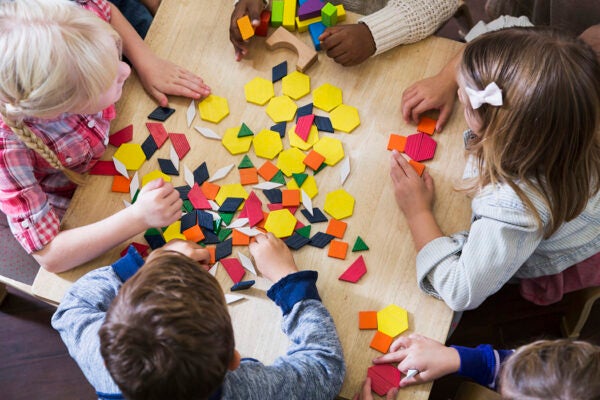Changing Playground Design, Changing How Children Play
The built environment of the playground influences children’s play styles, and even small interventions can affect cognitive and social-emotional development.
Making Implicit Racism
In the first few years of life, children learn much from the observation of the adults around them—including their biases.
Sci-Fi and Fantasy Build Mental Resiliency in Young Readers
Science fiction offers readers a way to rethink social dilemmas.
The Weird Psychological Theory behind Gym Class
The initial promoters of gym class believed that a child’s mind would “remember” evolutionary phases through the stimulation of muscle tissue.
How White Kids See Race
A study of white children in 1960s Wisconsin showed how strongly peer groups can affect the way people think about race.
Why Playing Superhero Is Good for Kids
It's hard to know how to respond to imaginative play that looks violent. Some experts say it's best to go ahead and let little kids play superhero anyway.
Big Brains Are Hard to Grow
Human brains take a long time, and a lot of energy, to grow to their mature state. This may well be an evolutionary tradeoff for having such big brains.
A Sense of Place for Toddlers
Young children have a unique sense of the world that can be difficult for grown-up architects to grasp.
Why School Is Boring
The average student is bored about 1/3 of the time. But that might have more to do with the kids' temperaments than with school itself.
The Cries Heard Around the World
ProPublica's audio of crying children in detention centers touched a nerve. Humans are keenly attuned to the sounds of crying, in part because of evolution.









